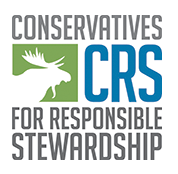The Endangered Species Act (ESA) turns 50 years old this year. The law, which was passed in 1973 by overwhelming bipartisan majorities in Congress (unanimous in the Senate) and signed into law by President Nixon, stands as an enduring testament that we can rise above our lesser instincts and be good stewards of what President Reagan referred to as “this magical planet that God gave us.”
From the deliberate and cruel efforts to eradicate wolves and grizzly bears from the Lower 48, to the carelessness that drove the bald eagle, our national symbol, to the brink of extinction, history is full of examples where mankind has been intolerant of wildlife and/or ignorant of its needs.
Thanks to the ESA, bald eagle numbers have recovered across the Lower 48, going from a low of 1,000 or less in the 1950s to more than 300,000 today. Wolves and grizzly bears have also rebounded significantly, with healthy, sustainable populations in several states.
Unfortunately, too many people fail to recognize the ESA as the conservative law it is. President Reagan once rhetorically asked, “What is a conservative after all, but one who conserves?” Conservative political theorist Russell Kirk went even further, writing in a Baltimore Sun op-ed, “nothing is more conservative than conservation.”
Wildlife, from apex predators to the tiniest insects, play an essential role in keeping the earth’s life-sustaining ecology healthy. Bears and wolves, by preying primarily on weak and sick moose, deer, or elk, make the populations of those ungulates healthier. And pollinators, such as bees and butterflies, are essential to our food crops.
From my personal experiences, I have come to see another value of wildlife conservation. Whether backpacking through the wilderness, or gardening in my yard, the wildlife I encounter increases my understanding of how everything in nature works together and has a unique purpose. That, in turn, reinforces my faith and heightens my appreciation for God’s handiwork.
Conservative author and poet T.S. Eliot perhaps put it best when he said, “A wrong attitude towards nature implies, somewhere, a wrong attitude towards God.”
Still today, selfishness and fear too often cause people to view wild animals as an inconvenience to displace or destroy, rather than God’s creatures that were put on this earth for a reason.
Back in 2011, Congress passed legislation—pushed by lawmakers in Idaho and Montana—removing ESA protection for gray wolves in those states. A year later, the Obama administration also delisted wolves in Wyoming, claiming that the population was stable and healthy.
The Trump administration then delisted gray wolves nationwide.
What has followed is a bloodbath on a scale not seen since the early 1900s. Idaho, Montana, Wyoming, and Wisconsin all engaged in aggressive efforts to dramatically reduce wolf populations. More than 10,000 wolves have been killed since 2011, including at least 25 from Yellowstone National Park.
It gets worse. In 2021, Idaho passed a law to reduce the wolf population there by 90%, to the minimum level that will not automatically trigger a relisting of wolves under the ESA. That same year, Idaho, Montana, and Wyoming petitioned to have grizzly bears delisted as well.
Unfortunately, protection under the ESA seems to be the only way to temper this unholy zeal to slaughter these predator species to the point of near extinction.
In this anniversary year for the ESA, the two most important things we can do is 1) get Secretary of Interior Haaland to issue an emergency relisting of gray wolves under the ESA, and 2) make sure she also rejects the Montana and Wyoming petitions to delist grizzly bears.
In these states, delisting is not a milestone of accomplishment, but rather a green light for eradication and a rejection of everything the ESA stands for.
The fathers of traditional conservative thought — such as the aforementioned Russell Kirk, British statesman Edmund Burke, and conservative philosopher/author Richard Weaver — emphasized that prudent forethought, humility, a spirit of piety and responsible stewardship are core conservative principles.
Being good stewards of our natural heritage, respecting the design of our natural systems, and recognizing that all wildlife species serve a necessary function is the prudent and conservative path forward.
Many years before the ESA was enacted, Weaver lamented mankind’s tendency to disregard nature in the name of progress. He warned that “Triumphs against the natural order of living exact unforeseen payments” and then he astutely pointed out:
“…man is not the lord of creation, with an omnipotent will, but a part of creation, with limitations, who ought to observe a decent humility in the face of the inscrutable.”
Conservatism at its heart is about mankind rising above his base instincts and doing what is right. That means respecting all of God’s creation and His design. The bipartisan passage of the ESA 50 years ago epitomizes those core—and most genuine—conservative values.


